编者按
北京德闳学校是一所为中国学生量身定制,将中国基础教育的精髓和德威国际教育集团领先的教育理念有机结合的高标准国际化学校。学校旨在培养既深谙中华文化传统美德又拥有包容开放的世界情怀的未来公民。
在德闳幼儿园科学博览会上,孩子们围绕多个主题开展实验。
海洋资源被污染了该从哪里开始拯救?
显微镜下的细菌都有哪些奇奇怪怪的形态?
熊冬眠时会觉得冷吗?
人造雪的制作过程复杂吗?
威风凛凛的恐龙怎么会变成化石?
颜色究竟有多少种混合的种类?
火山爆发可以轻易模拟出来吗?

以上正是德闳幼儿园科学博览会上
小朋友们的实验研究内容
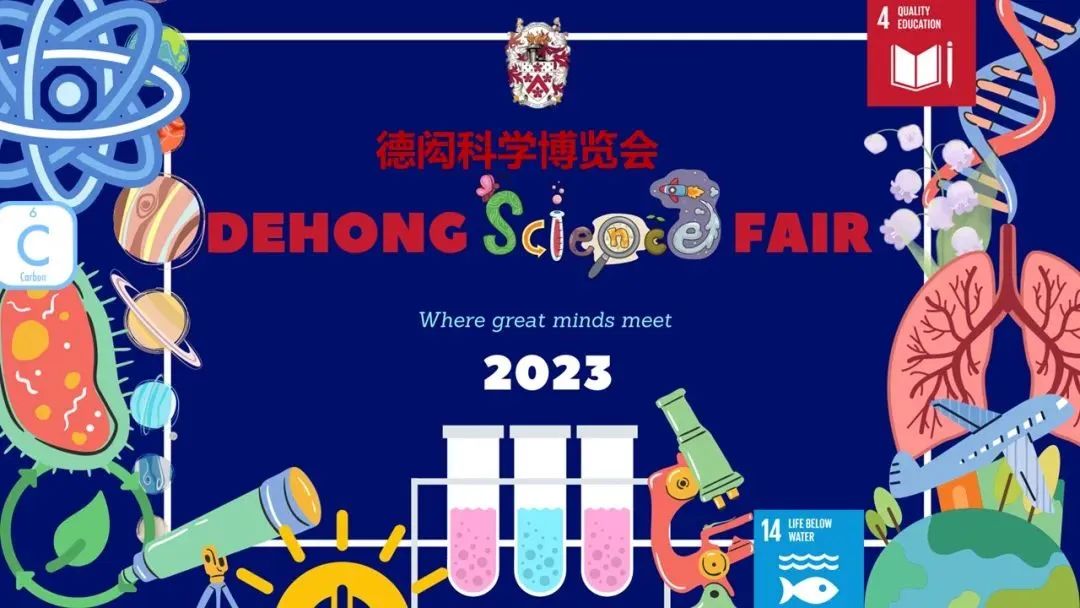
这次科学博览会围绕着零碳十一月和可持续发展教育,以有趣的科学实验方式,带领孩子们了解科学现象和原理,从小激发他们对自然、气候、环境保护的兴趣,树立可持续发展意识。
幼儿园小朋友们爆发出强大的能量,面对这个一切都还是新鲜的大千世界,他们尝试用各种方式去感受与体验它的奥妙。在十一月的探索世界学习过后,每个班级用科学实验的方式展示了各自的研究成果——制作材料、分析结果、介绍海报等等。带着敏锐的好奇心,他们观察、探索、思考、领悟,探秘科学!
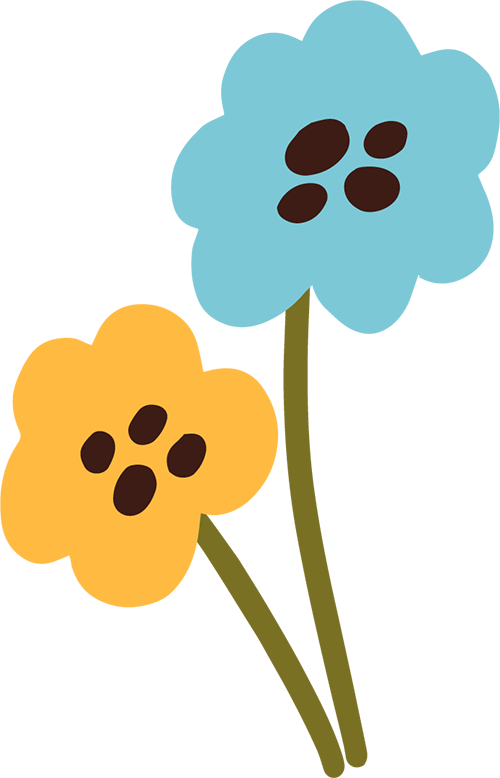
01
治理水污染
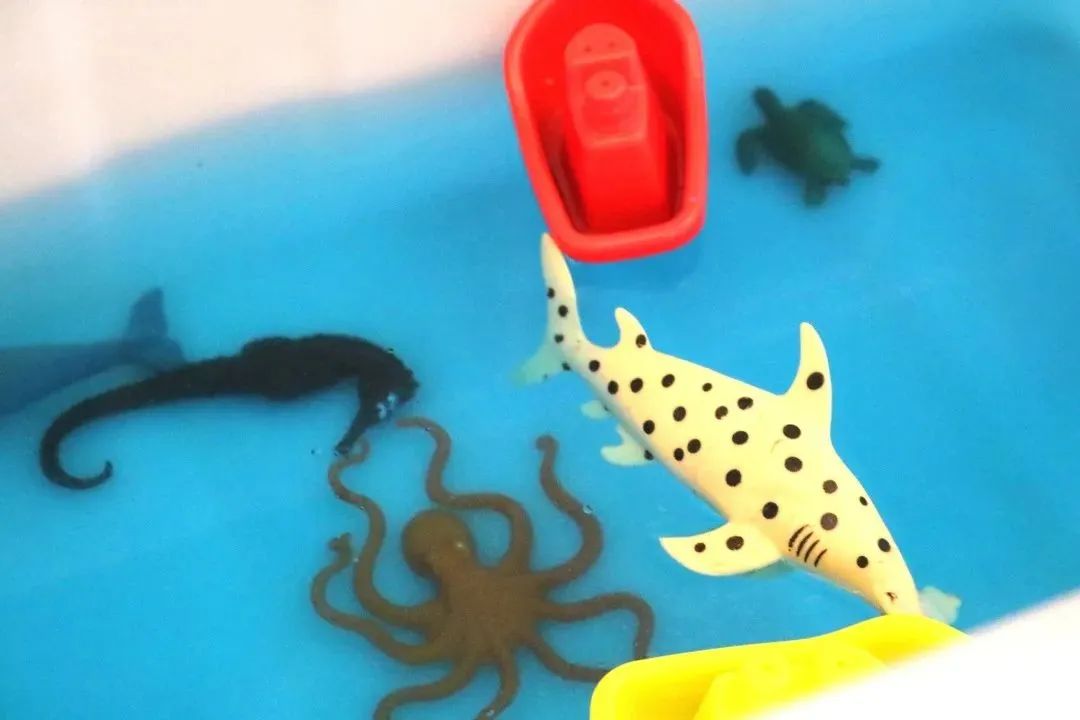
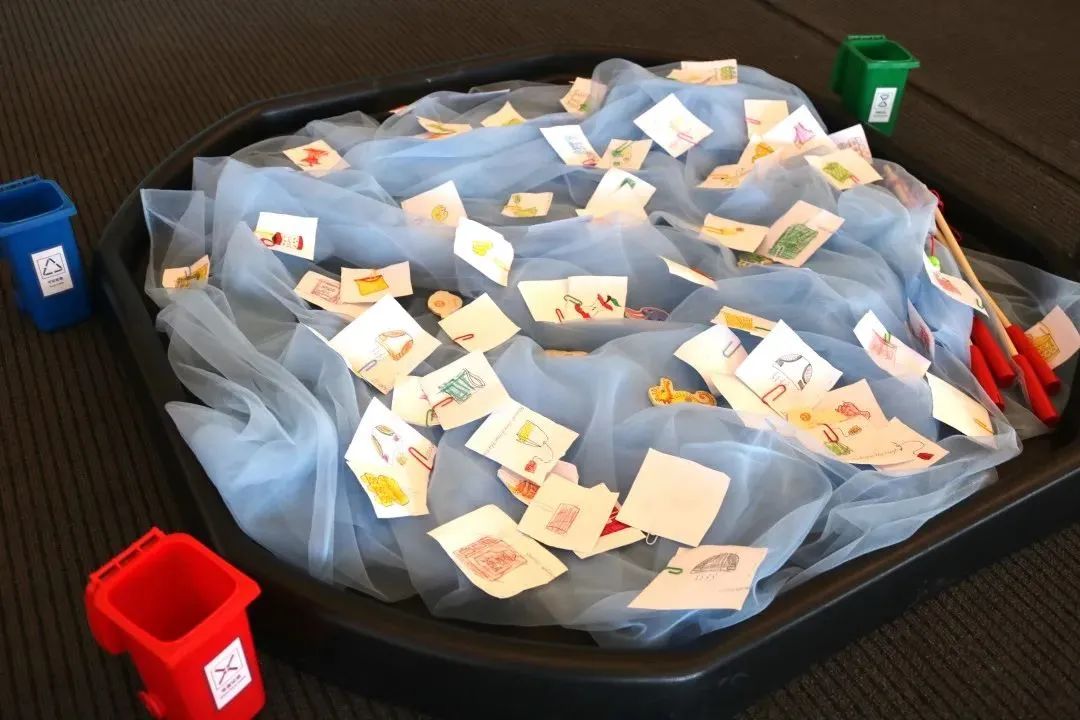
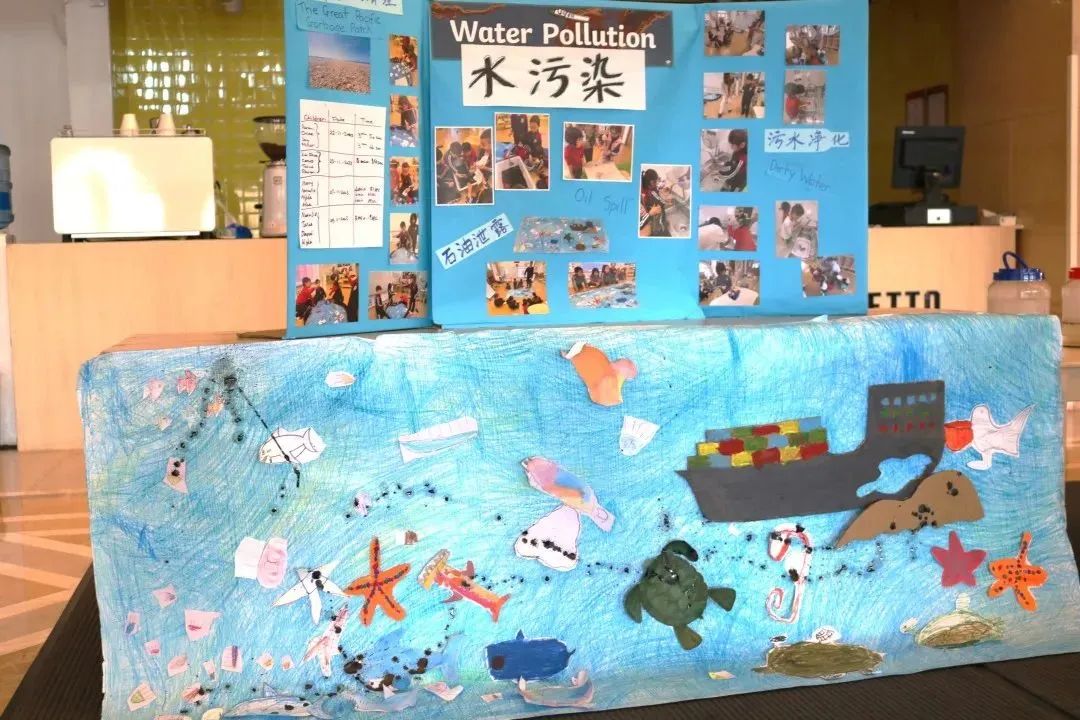
看着生存环境受到威胁的海洋生物,小朋友们急切地上前清理泄漏的“石油”,“钓”起垃圾进行分类,还他们一片清澈的汪洋大海。
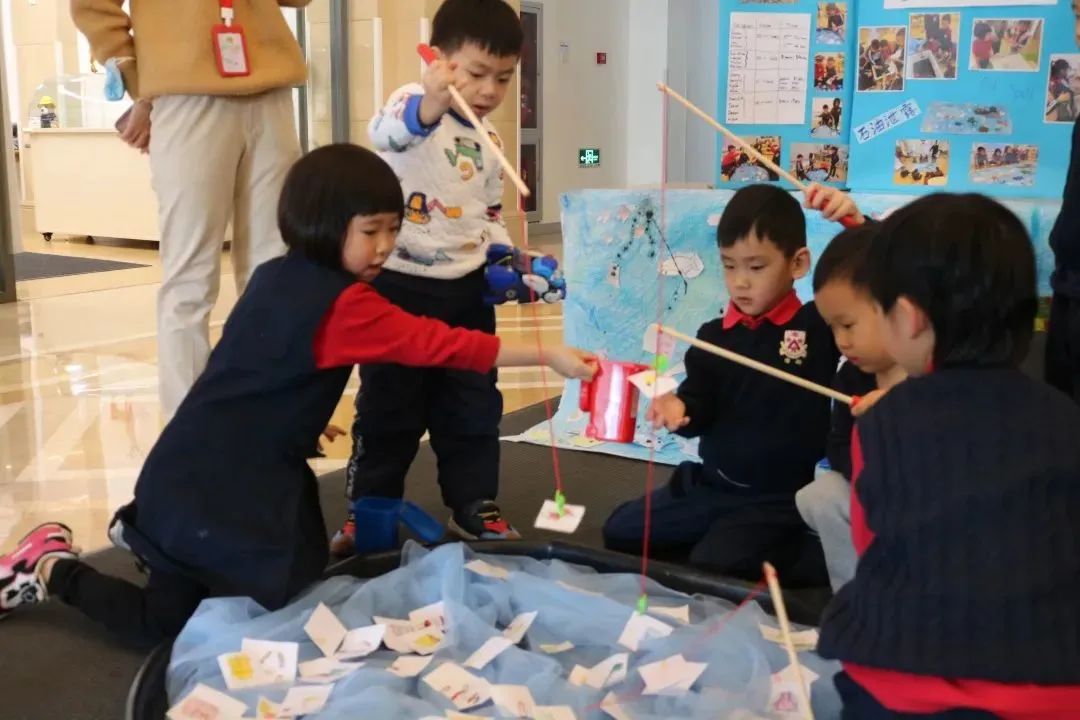
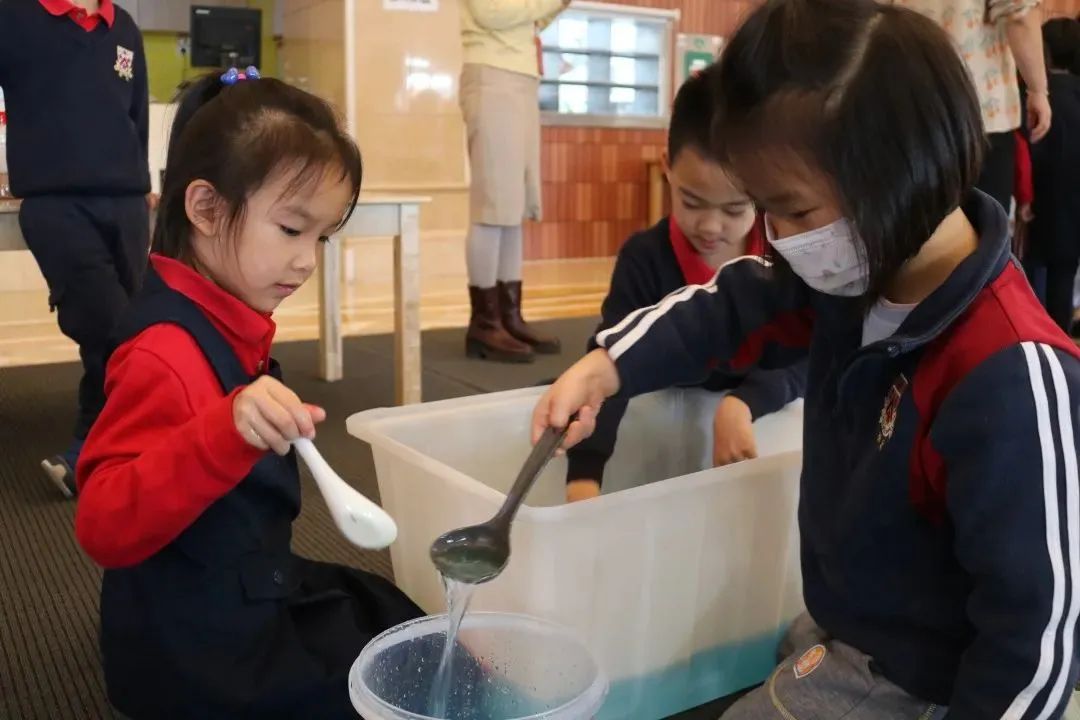

02
显微镜下的细菌
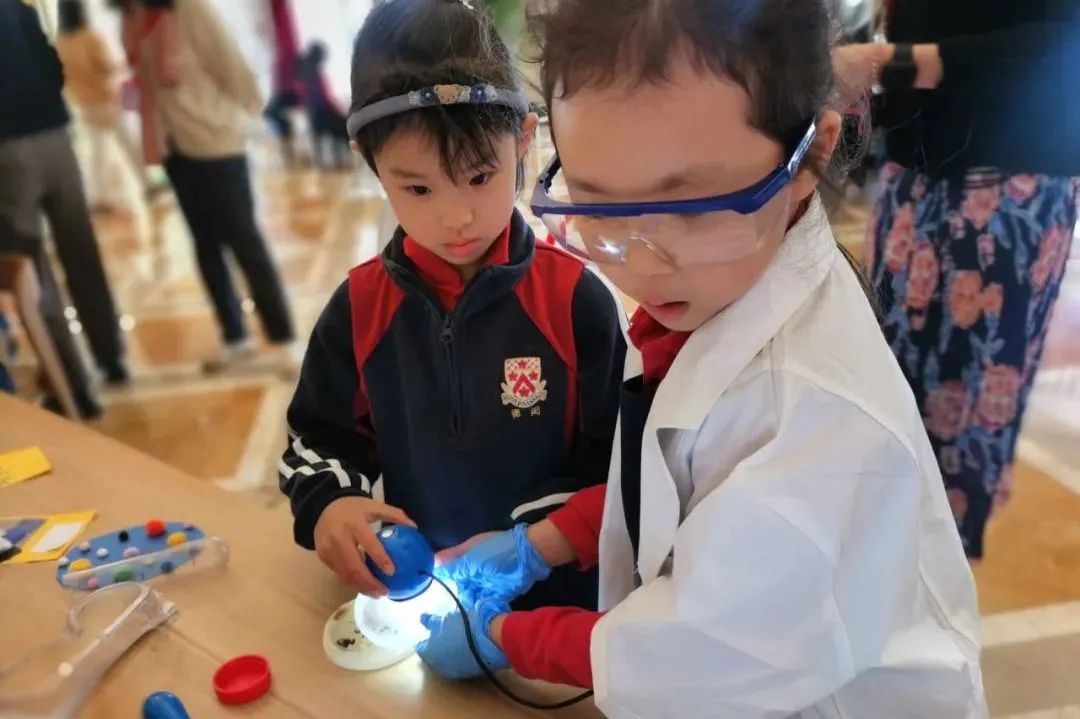
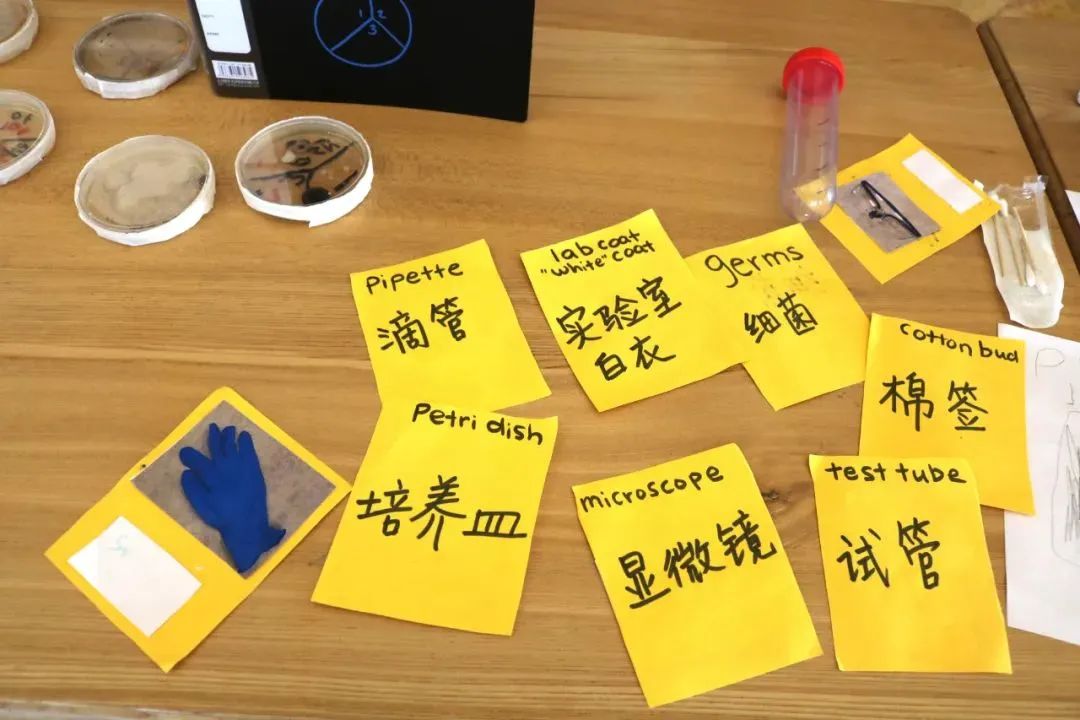
穿上白大褂,拿起显微镜,孩子们仔细观察着器皿里不同的细菌被放大后的样子。边学习实验室科学家的实验步骤,边用画笔记录他们发现的细菌模样。
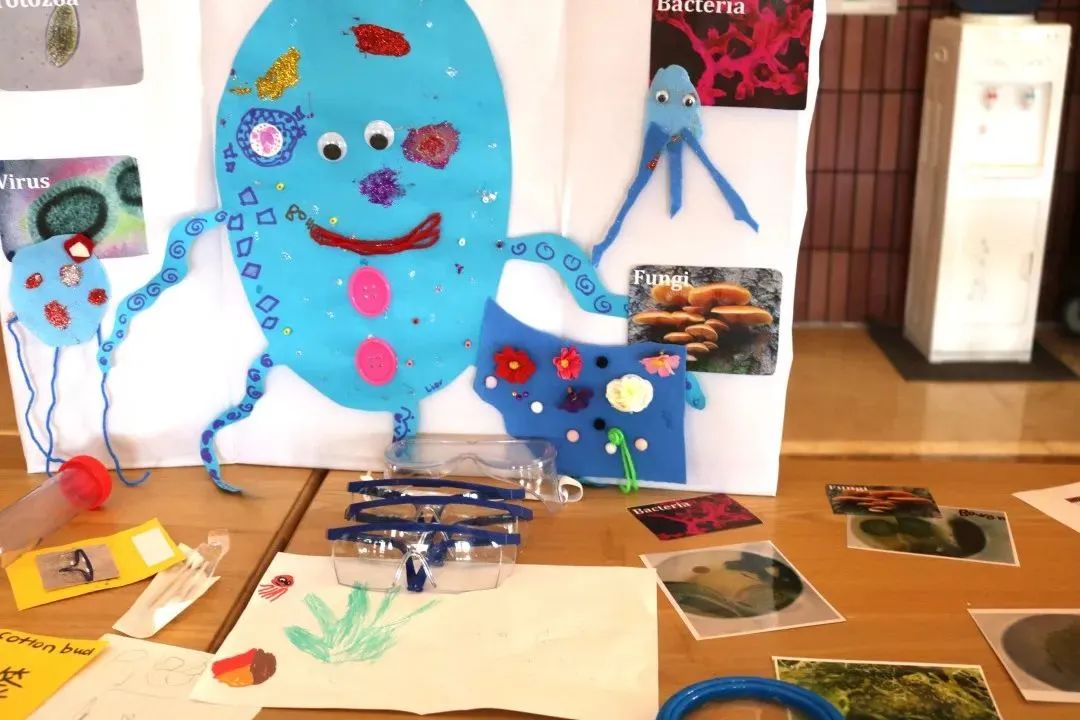
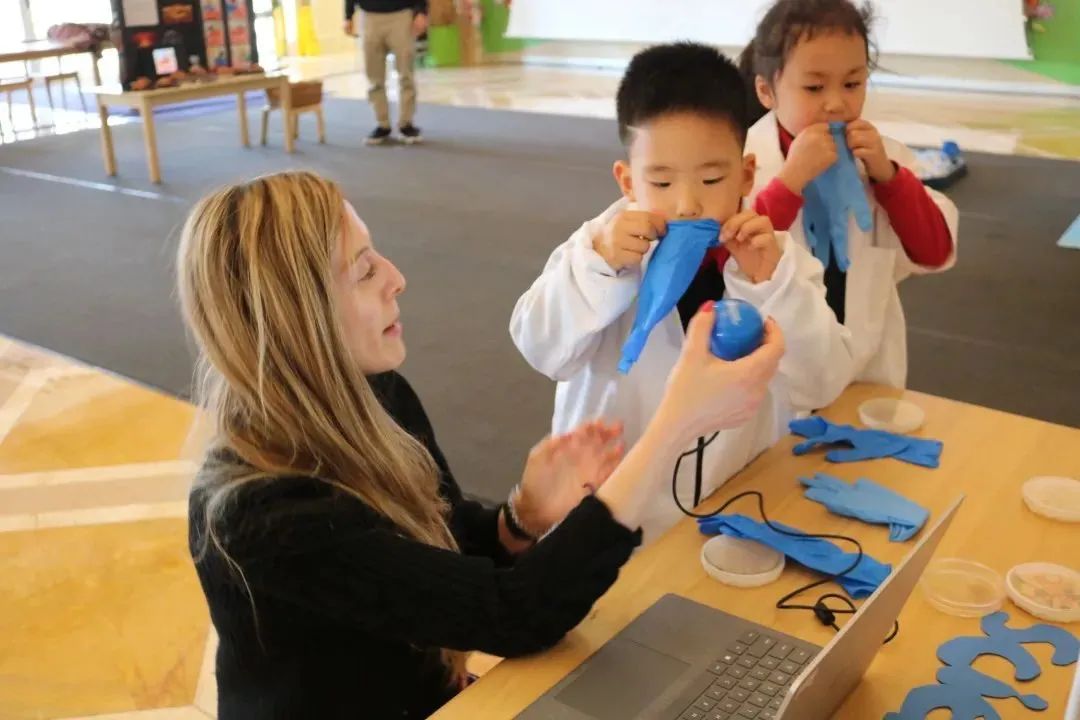
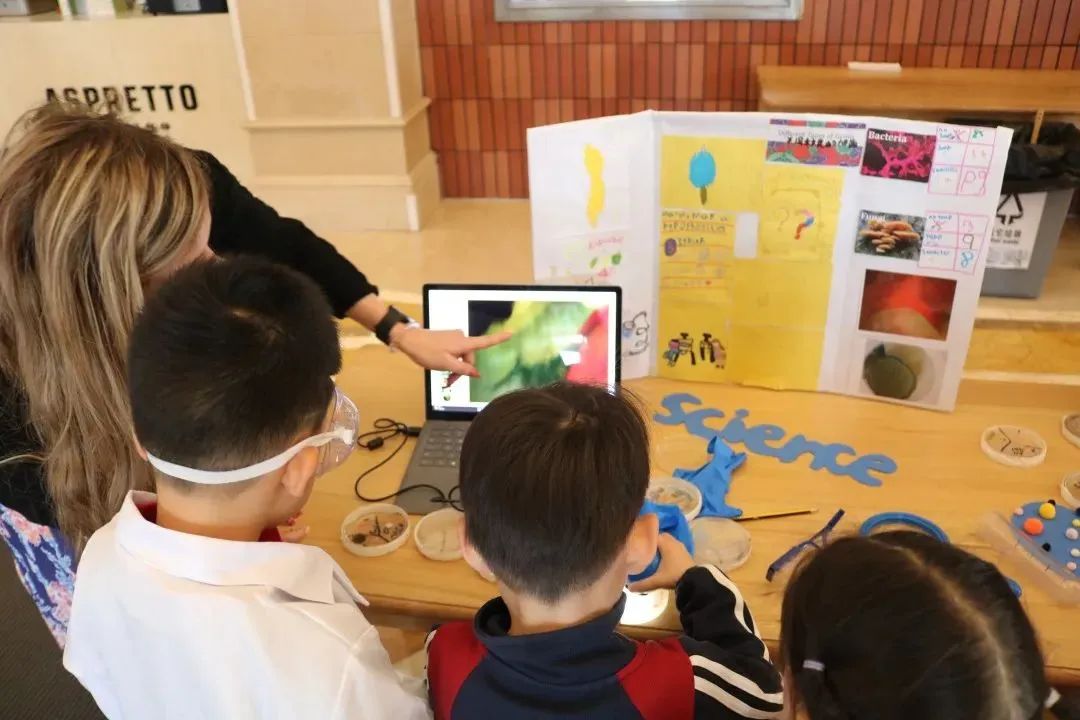
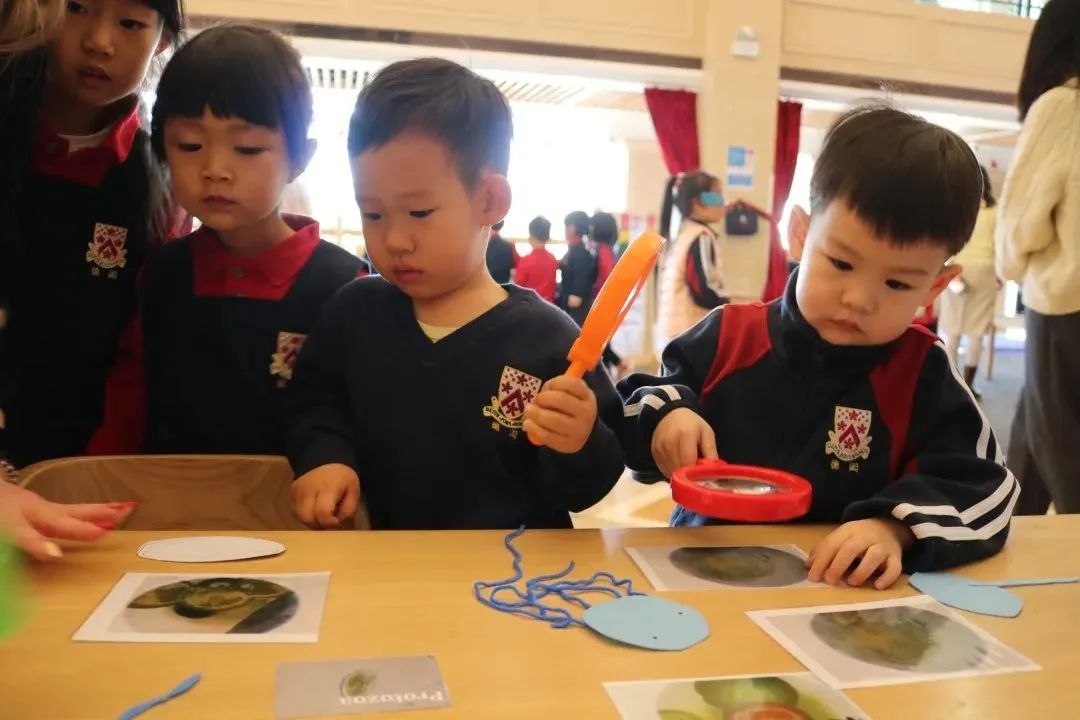
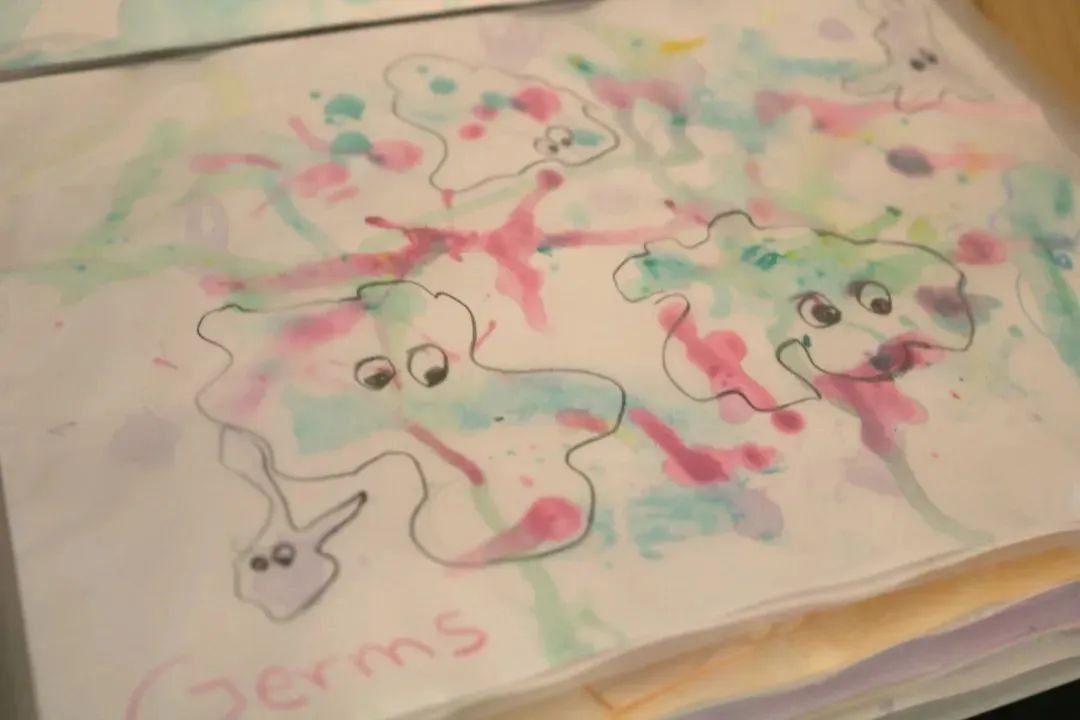

03
冬眠必备条件
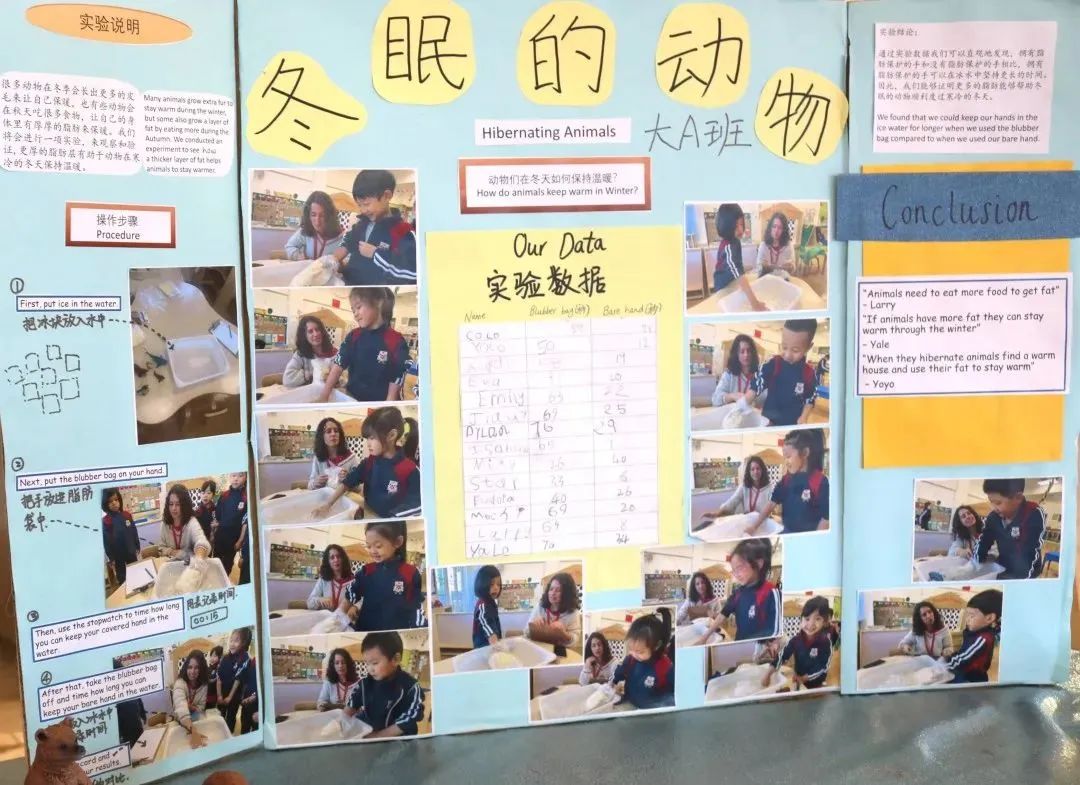
寒冷的冬天,许多动物都会陷入甜蜜的梦乡,进入短暂的休眠状态。那么,睡着后的他们还会觉得冷吗?有的动物会生长浓密的毛发取暖,有的动物会在秋季多食增加脂肪。原来!大家迫切想减掉的脂肪层竟是冬天守护健康的卫士。
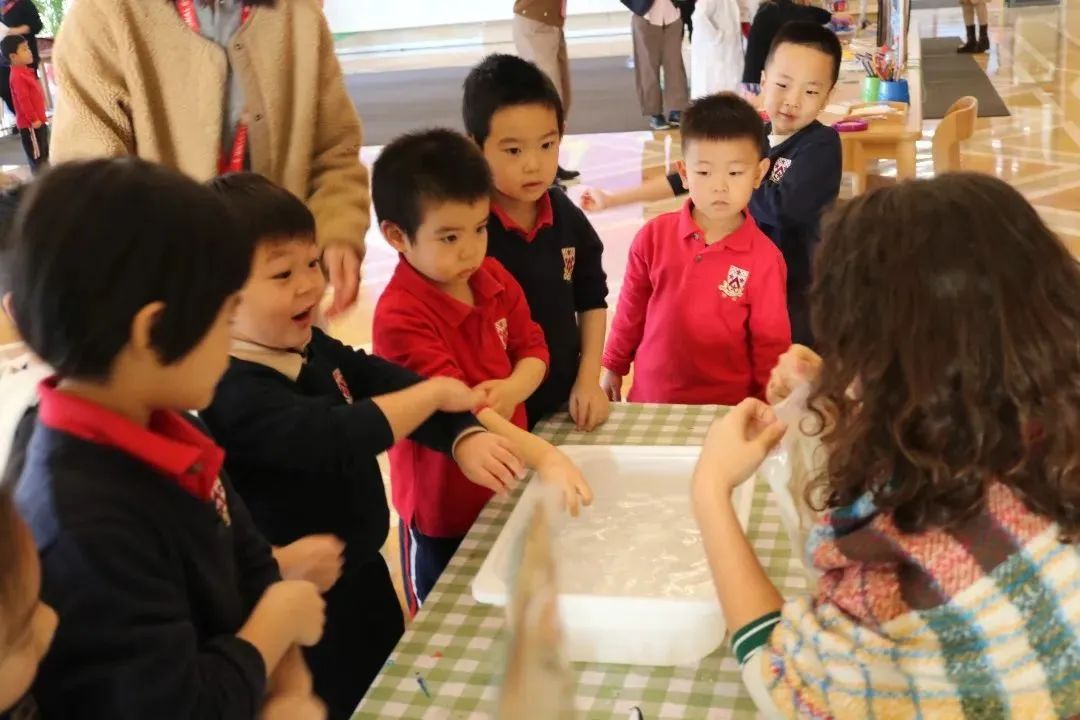
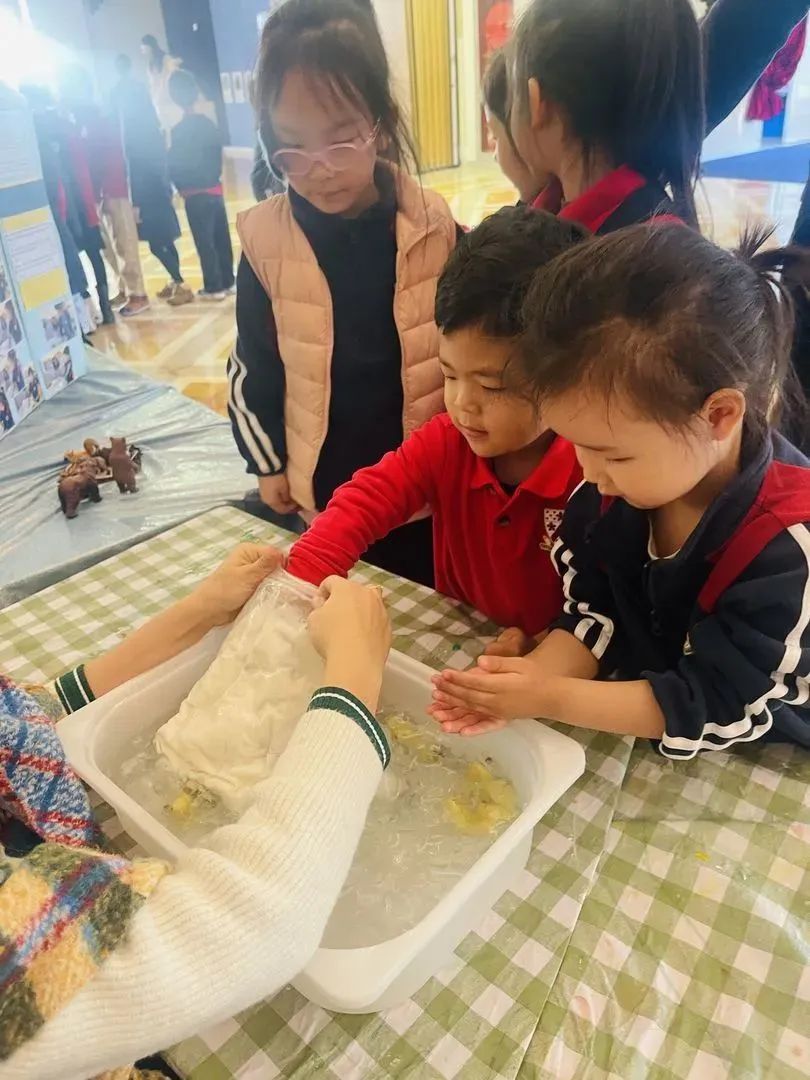

04
不会融化的人造雪
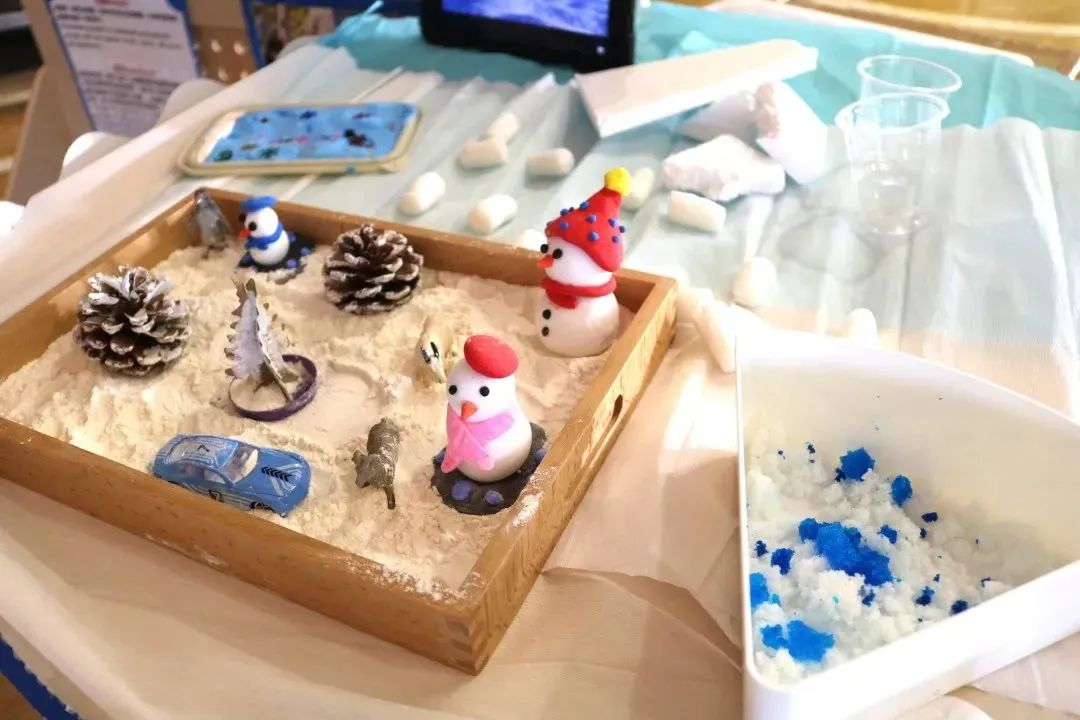
你觉得雪可以轻易被制作出来吗?答案是,仅需要水和吸水树脂!吸水树脂在充分吸收水分后膨胀,便成为了亮晶晶软绵绵的人造雪。
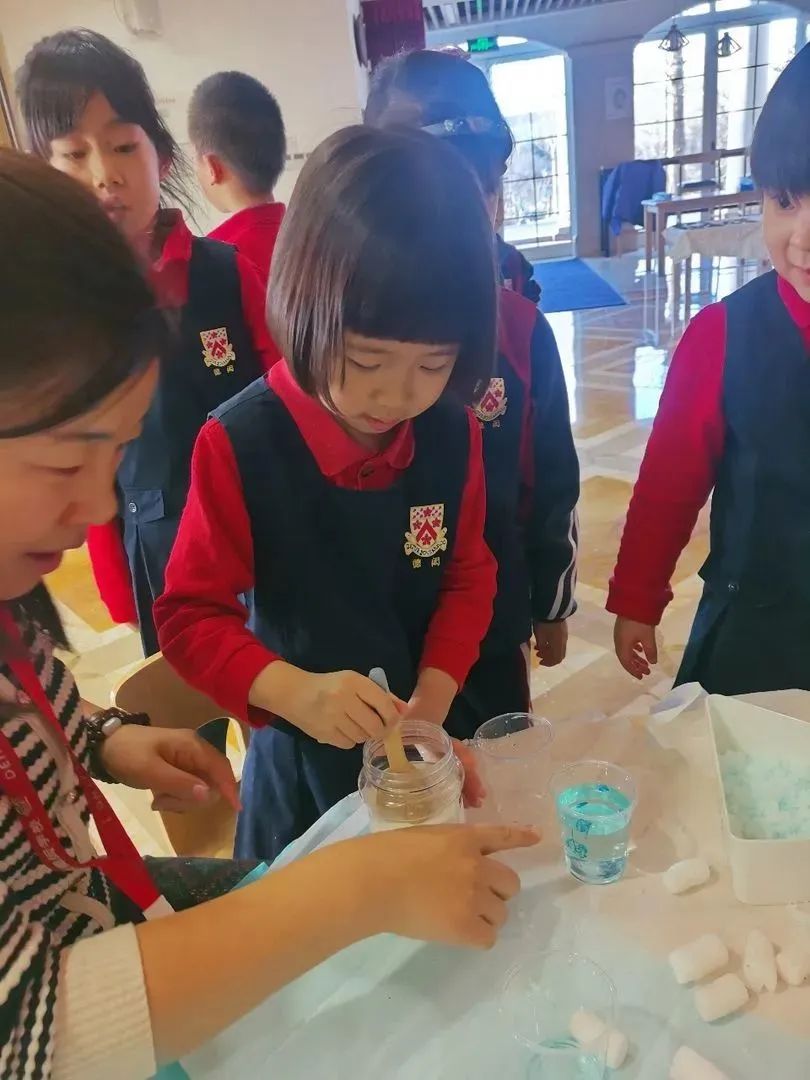
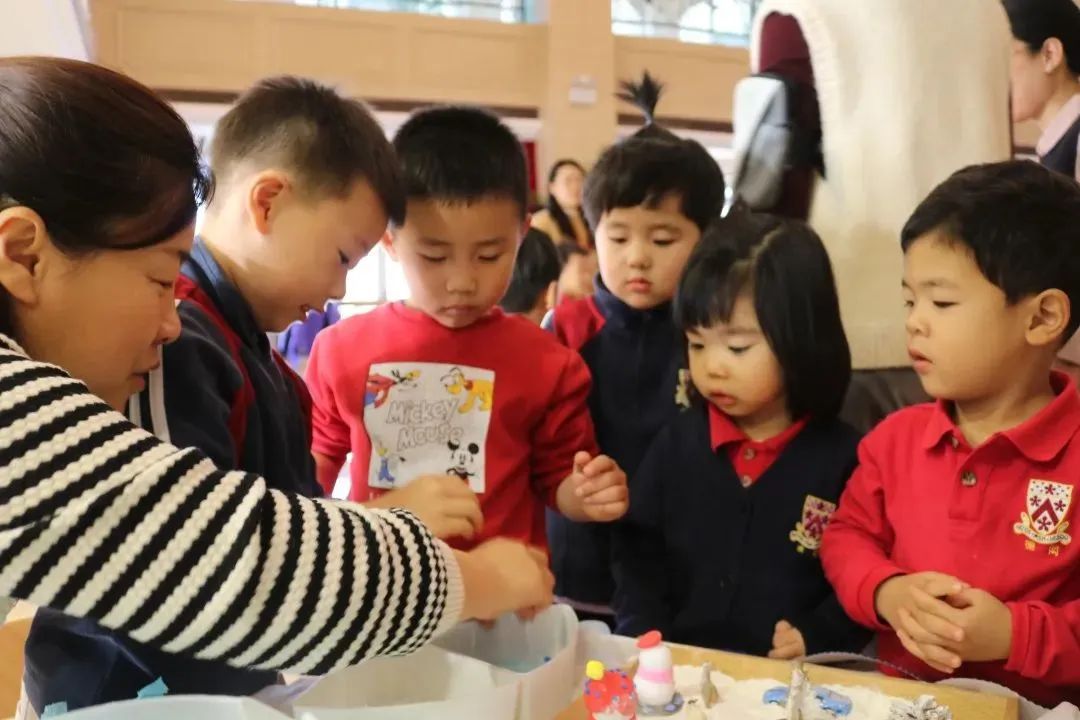

05
恐龙化石
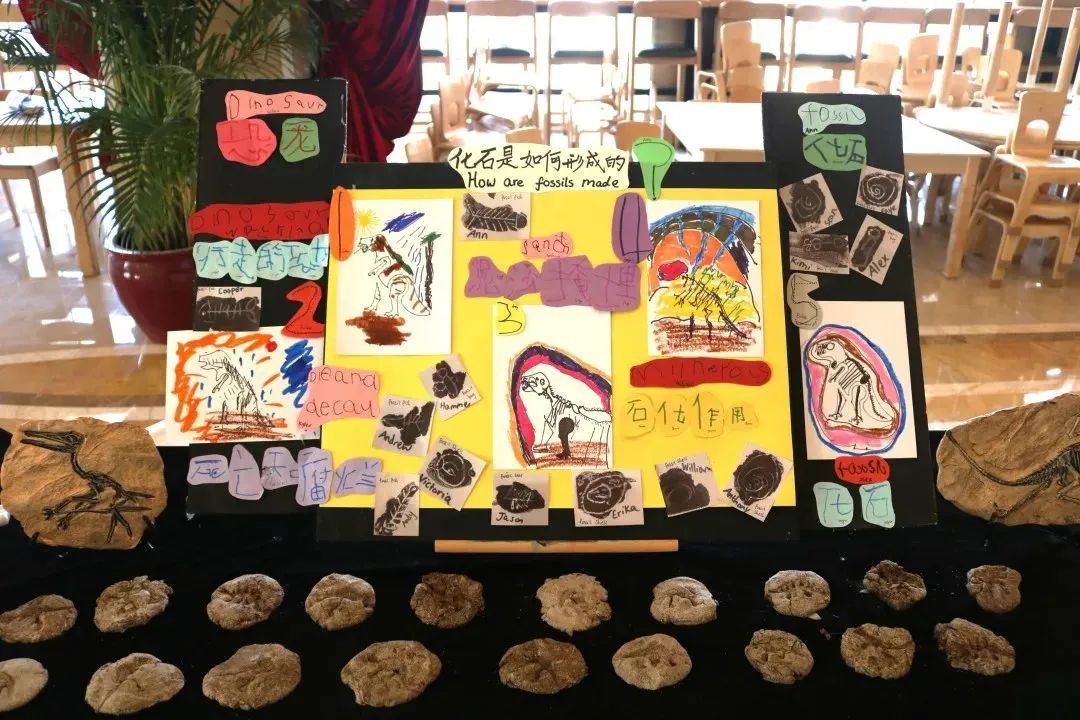
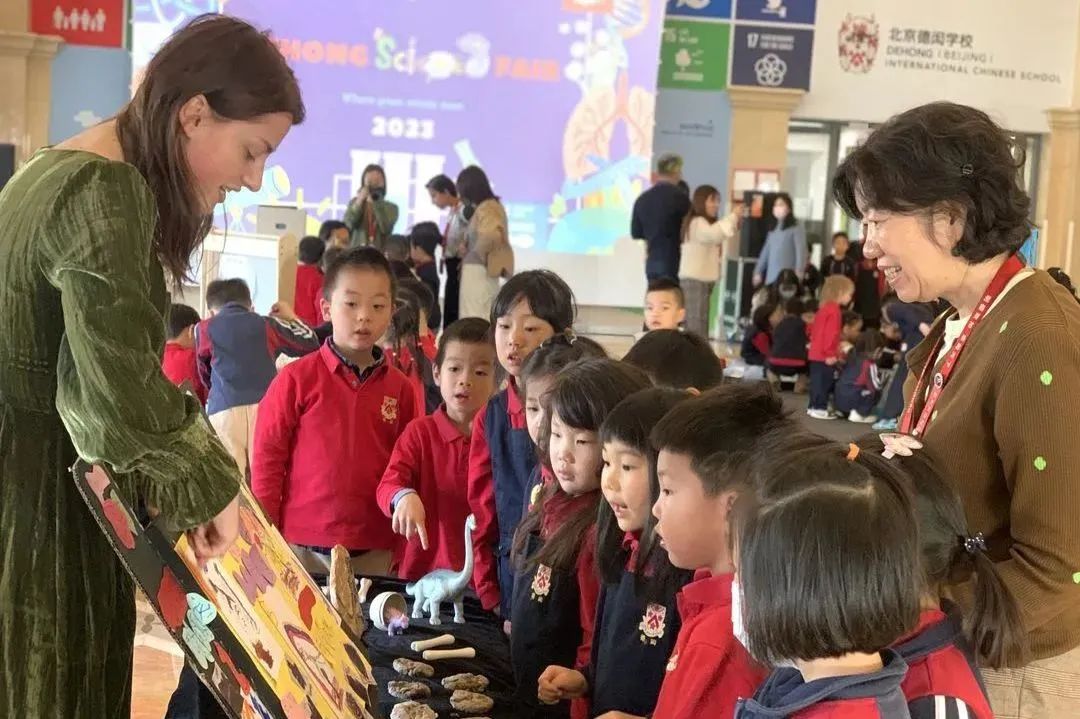
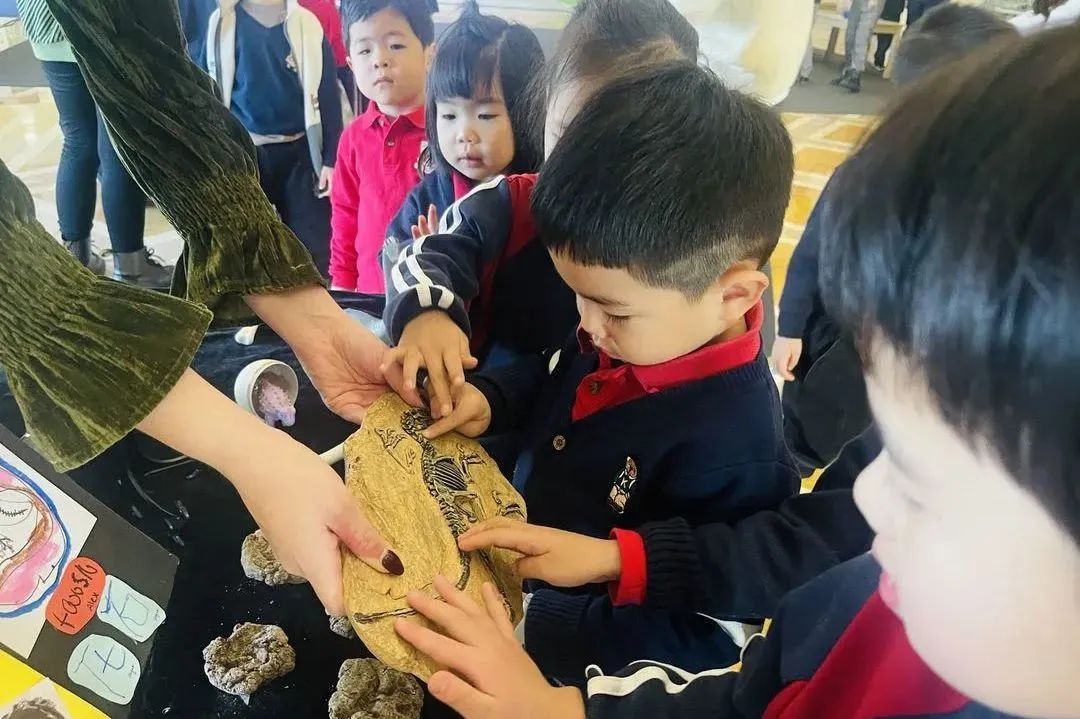
侏罗纪晚期的庞然大物恐龙曾经一度统治着地球,如今却变成了沉睡的化石。这究竟历经了怎样的过程?孩子们瞪大双眼认真聆听。最后他们亲手制作了自己的“恐龙化石”。
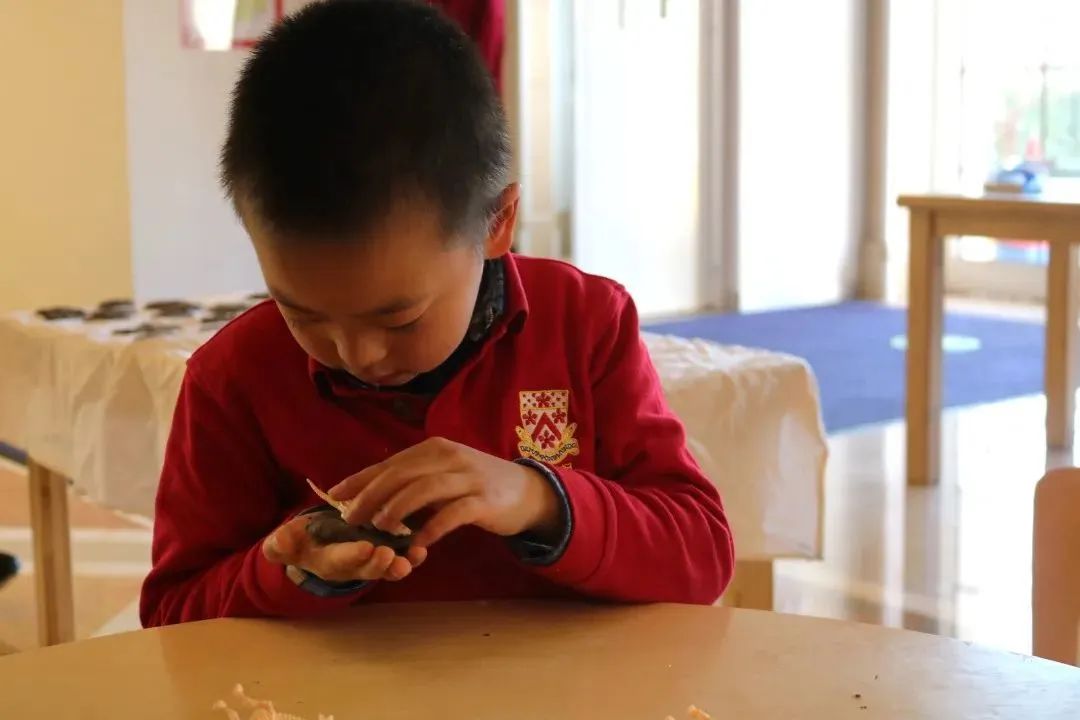
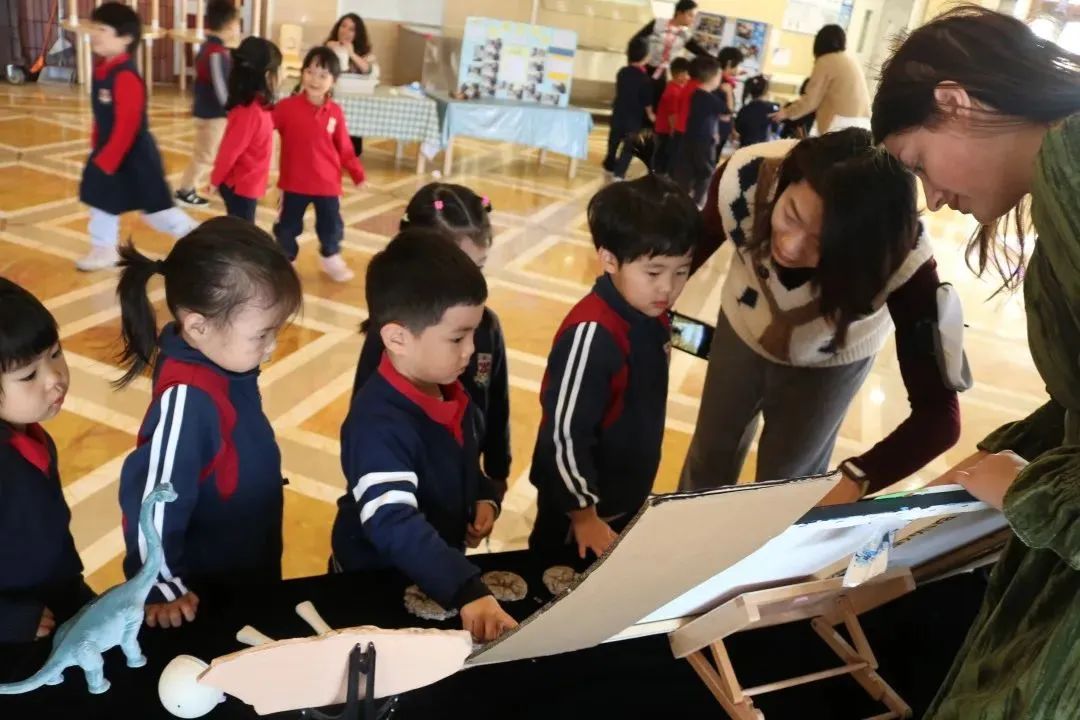

06
疯狂混色
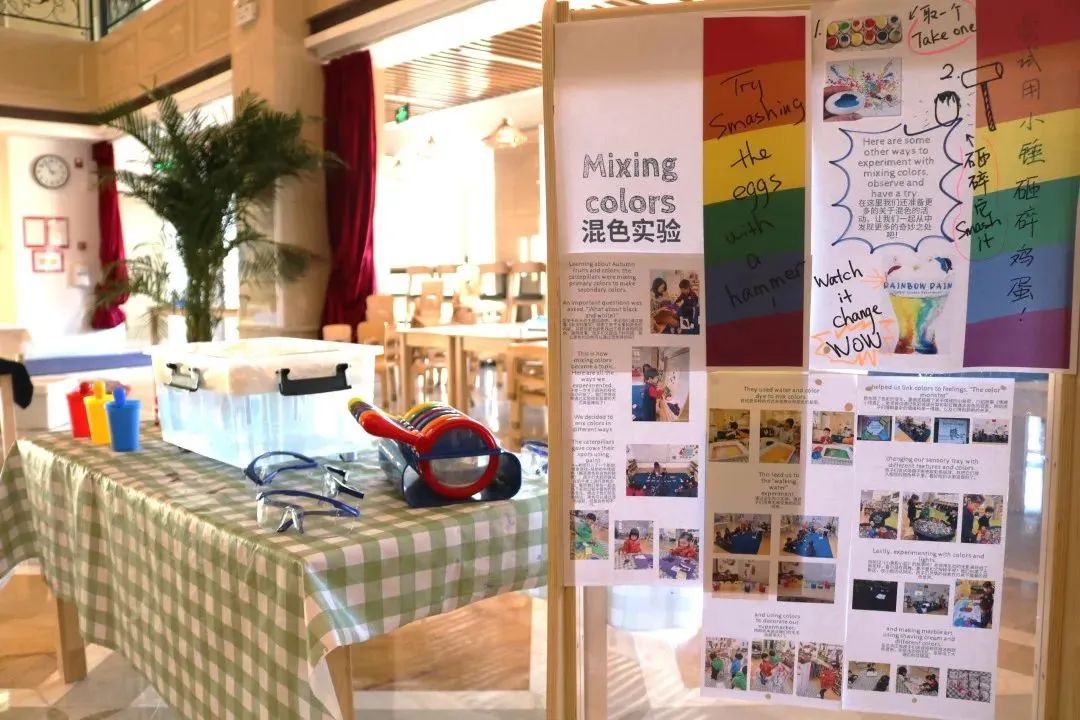
黑色和白色可以通过颜色混合实现吗?想找到问题的答案,往往自己动手验证才能得到最真实的结果。
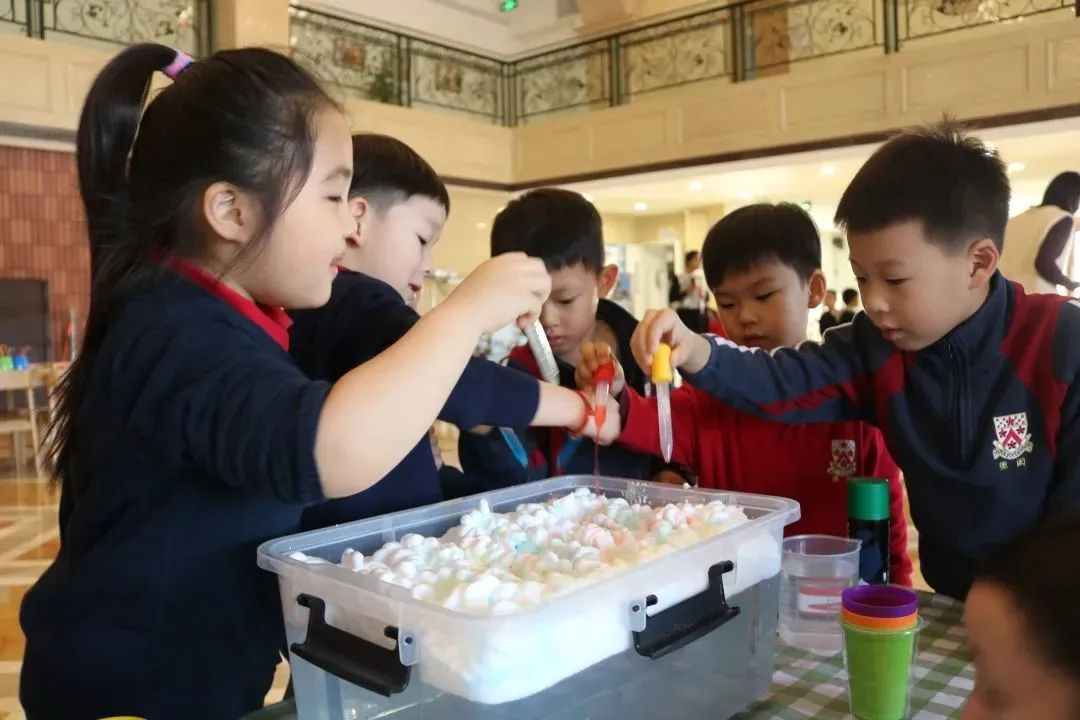
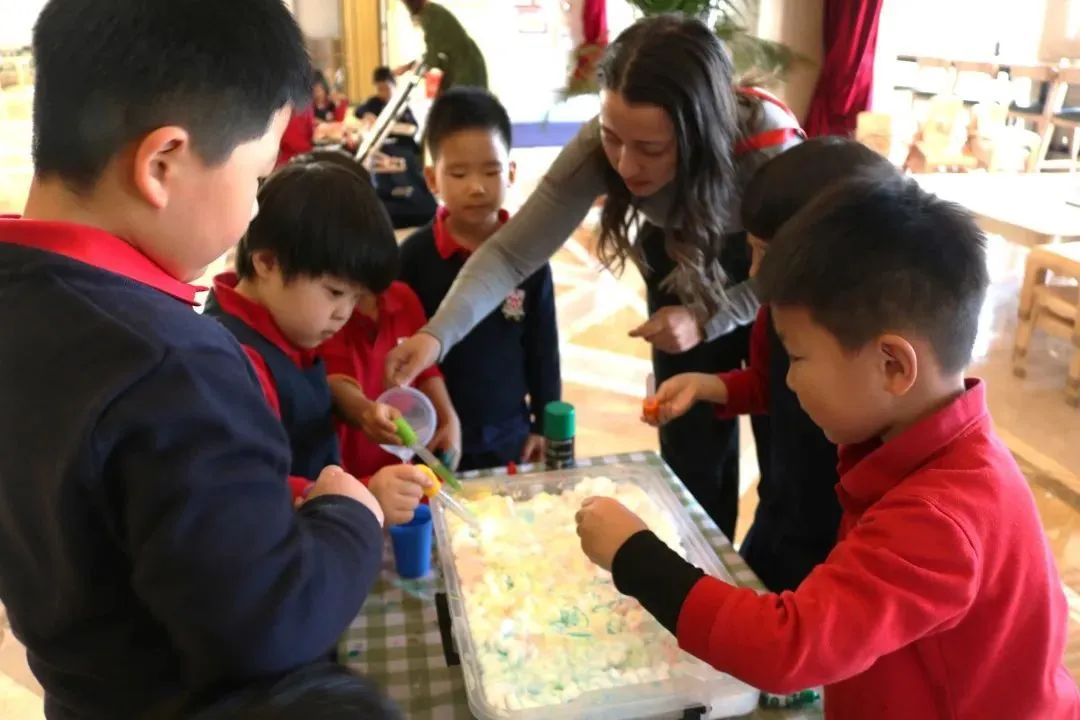

07
火山大爆发
火山喷发的原理是什么?这种现象可以在日常生活中模拟出来吗?老师用小苏打和醋酸真实再现了这一奇观。
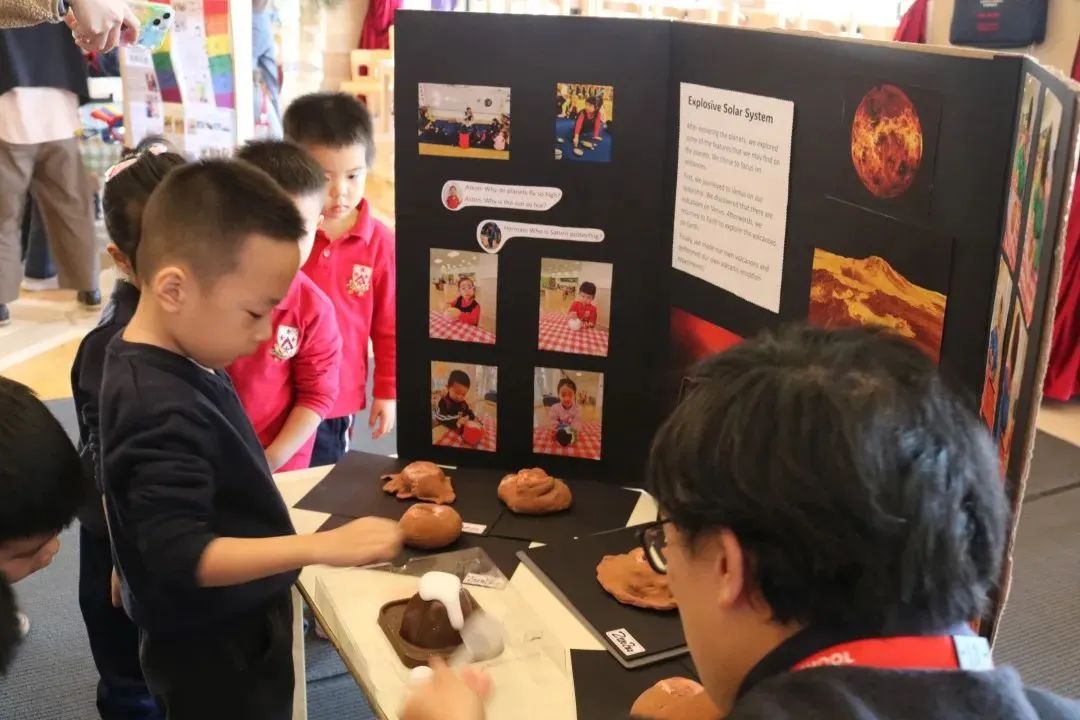
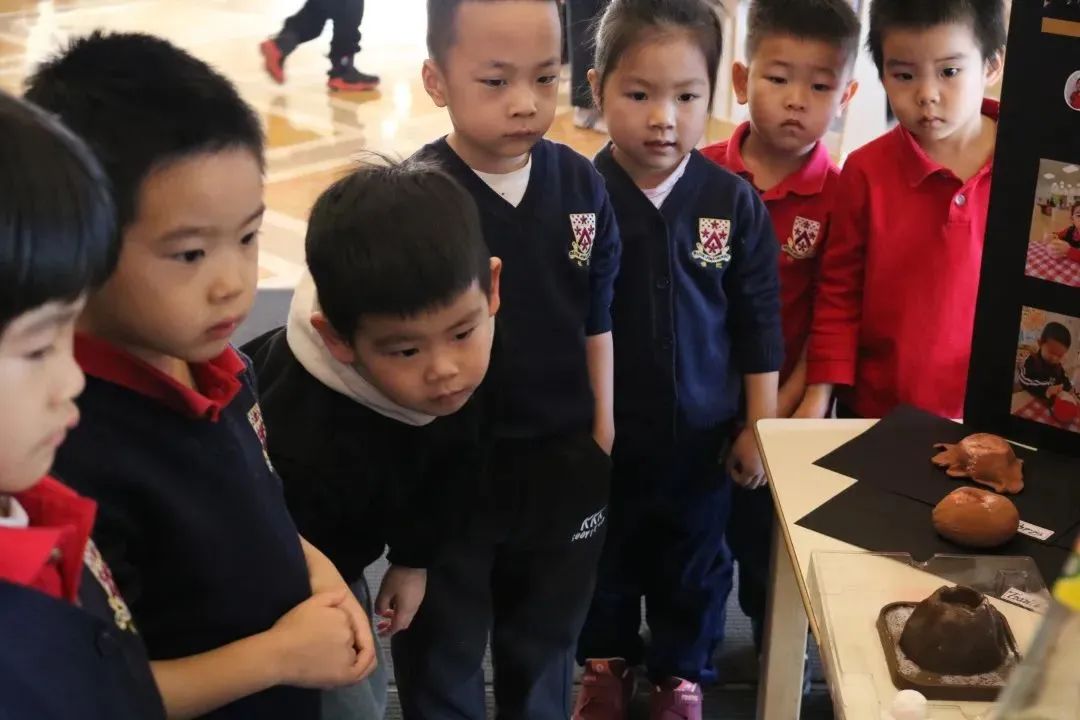
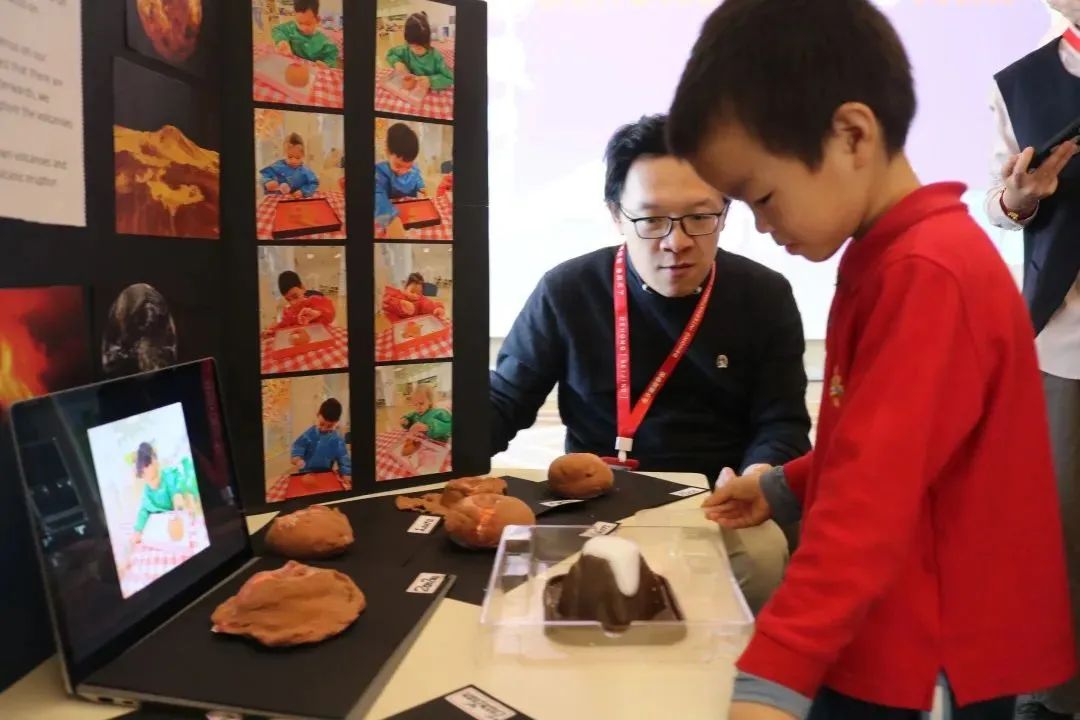
科学教育
孩子是天生的学习者,他们热爱探索与实验。从小让他们接触科学能帮助他们保持好奇心。此外,科学能够帮助他们发展解决问题、测量计算、语言、预测等诸多能力。即使实验失败,他们也能从中吸取教训,懂得有时事情的结果不可控,培养坚韧的毅力。
对孩子们来说,一个非常重要的技能,
便是学会说“为什么?”,
应该经常鼓励他们去提问以及寻找方式去解答。
今天,他们已经迈出了可贵的第一步,
接下来,科学将指引他们去往哪里呢?
Science Fair
Dehong Kindergarten Science fair, where great minds meet.
On Thursday 30th November an innovative, interesting, and inspirational event happened at our Kindergarten campus.
During the month of November, the classes explored the world around them through science experiments. At the end of the month, it was time for the presentation. Each class created their own experiment to present and share with the other students. The children created them from beginning to end, helping to create materials, predicting the results, making a poster to display the research and findings, and then presenting and explaining it to other students.
On the day of the Science fair, children entered the canteen and were greeted by futuristic music and tables laid out with experiments surrounding different themes.
Children moved around excitedly from table to table to explore the range of topics. Often repeating experiments several times. They learned about water pollution, how animals stay warm during hibernation months, making snow, colour exploration, volcanic eruptions, petri dishes of germs and how dinosaur fossils are made. Each experiment created more and more excitement.
The event sparked further interest in the subject of science with many children asking when the event will be held again.
Why is science important to children?
It can foster a lifelong love for science. Children are natural learners who love to explore and experiment. Introducing science at an early age will help them continue this mindset and curiosity. Furthermore, Science can help children develop other skills such as problem solving, numeracy through measuring, language, and prediction skills. Even failed science experiments teach children that we can’t aways control the outcome and persevere. In conclusion, creating an early interest in science can support many skills for young children.
One of the most important skills is to ask “Why?”, encouraging them to ask questions and find ways to answer them.
Our little scientists have taken the first step, where will science take them next?
转自:北京德闳学校官方公众号
【点击进入京领国际学校大数据平台,
为孩子选择美好人生】
转载或商务合作请联系
电话:010-82362348
微信:Kinglead008















